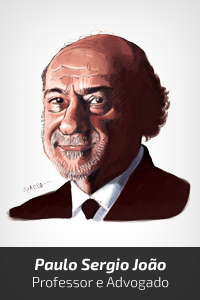The Federal Constitution, guaranteeing in Article 9 the right to strike and establishing that it belongs exclusively to the workers “to decide on the possibility of its implementation and on the interests to be protected by it”, established a right without reservation, but which, of course, could not be exercised without any responsibility. In this sense, the first consequence of a strike, political or not, is the loss of weekend pay (with a few exceptions), a situation that could be overcome if the unions set up a so-called strike fund, the purpose of which is to guarantee the strikers at least part of their wages. during the strike.

With regard to the intervention of the Labor Court in the resolution of disputes, paragraph 2 of Article 114 CF allows its jurisdiction, provided that the parties show common consent.
However, the more difficult issue to be brought to justice is the political strike, and the questions to be answered are: should political demonstrations be brought to justice? To what extent can a judge state impose sentences on freedom of speech? The object of the strike of a political nature is not of a labor nature in the strict sense, that is, the employer or employers are not expected to comply with the stated requirement, which usually arises against legislative changes that may affect the rights of workers or expressions of solidarity with a social, regional, national or international cause. The strike in these cases aims to publicize the exposure or threat of acts being done or about to be done that the strikers believe could seriously affect society. In this sense, demonstrations of the so-called “yellow vests” took place in France in 2018 (yellow vests) clashed with the government without judicial intervention.
This time, given that the Labor Court’s jurisdiction is limited to making instigated decisions on wall movements predominantly of a labor nature, it would seem that when a strike is political in nature, it does not fall within its jurisdiction. .
However, in fact, often the labor court is provoked to consider strikes of a political nature.
TST website, 05/04/22, with title “The Espirito Santo bus strike against pension reform is considered a violation”, announced that Division Specializing in Collective Bargaining (SDC) of the High Court of Industrial Disputes in Proceedings ROT-303-39.2019.5.17.0000 “I declared insulting the strike launched by the Trade Union of Road Transport Workers of the State of Espirito Santo (Sindirodoviarios) on 06/14/2019 against the constitutional amendment to the welfare reform, which was then being carried out in the National Congress. with the collegiate strike was politically motivated, with claims that could not be satisfied by the employer. The decision allows the deduction of the stopped day from the wages of those who participated in the movement “.
The speaker, Minister Delaida Miranda Arantes, although taking a different position, followed the understanding of the college, holding that the strike was political in nature and therefore offensive, and the day off should be deducted from the workers.
The TRT of the 17th district earlier in the court decision expressed itself as follows, intending to recognize the competence of the labor bias “In this particular case, the strike was used as a form of protest in defense of the professional interests affected by the welfare reform, so the strike in question was included in the context of a labor law requirement in a broad sense, and not a party-political strike.”.
However, as the minister acknowledged, the strike is political in nature, and therefore it might not be appropriate to judge a political demonstration that ended in a strike as a condemnation of the damage caused by the pension reform, given that political demonstrations, peaceful in nature, should not be put on trial.














